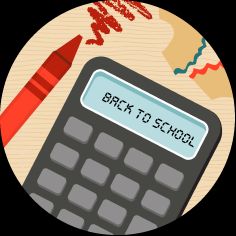Children with ADHD may benefit from individual sports or team sports, depending on their needs. It is important to let your child have a say in the process of choosing a sport.

Many children with attention deficit hyperactivity disorder (ADHD) are interested in participating in sports, which may help mitigate some of the symptoms associated with this condition.
ADHD affects children differently, meaning an intervention or treatment that may benefit one child may not serve another. The same applies to sports, where one child may excel playing a specific sport, yet experience difficulties with another.
While there are many benefits of playing sports for children with ADHD, they do not treat or cure the condition. Instead, they can be a positive adjunctive therapy to other traditional treatments.
Team vs. individual sports
Some children with ADHD who are inattentive or need frequent feedback to stay engaged may benefit from sports that require individual focus, such as solo sports.
This way, the coach can dedicate more one-on-one attention and help them focus on one task. Examples include:
- wrestling
- track and field
- tennis
- swimming
- martial arts
- dance
Though more one-on-one time may be helpful, your child may miss out on some benefits of team sports, such as socialization, teamwork, and making friends.
Still, if your child becomes easily distracted in a group environment, then solo sports may be best.
If your child is interested in playing a team sport, you should encourage them to do so. An older 2014 study found that for some individuals with ADHD, team sports improve social skills deficits.
Open-skill vs. closed-skill sports
Sports that are fast-paced and require adaptation during dynamic gameplay are known as open-skill sports. Closed-skill sports, on the other hand, are sports where the skill required is consistent, predictable, and self-paced, like running or swimming.
For example, soccer and basketball are team sports that involve constant moving and gameplay. In contrast, baseball can involve a lot of standing around between plays, which increases the odds of distraction.
Two major benefits of team sports are team-building and positive peer interactions. If your child has fun with their friends while being physically active, that’s a win-win. What’s more, in a team sport, you win and lose together, taking some of the pressure off of your child individually.
Ultimately, which sport your child plays is dependent on their unique personality, preferences, and diagnosis.
It may be helpful to let your child experiment with different sports before signing up for one. Often they can try different sports during school, in after-school programs, and at camp, for example. This can give your child time to figure out which ones they find joy in.
Once you’ve decided on a sport, give your child enough time to learn the rules and develop the right skills for the sport. It’s common for all children — with or without ADHD — to change their minds a few times about which sport they want to play.
You’ll also want to let the coach know about your child’s ADHD diagnosis and provide supportive guidance when necessary.
They’re being physically active
Sports provide an excellent outlet for exercise, since they’re often a few times per week and are fun for children. What’s more, exercise can be an effective way to manage ADHD symptoms. It can improve:
- executive function
- motor skills
- attention
The benefits of regular physical activity
- strong muscles and bones
- increased lung capacity and heart health
- better performance in school
- healthy body weight
- a lower risk of developing chronic diseases later in life
Positive social interactions
Team sports can be a great way for your child to make friends and learn to work in a group environment.
In some cases, children with ADHD may struggle to develop strong friendships with other children due to their condition. They may also struggle with unstructured activities, such as recess or neighborhood play. This can make it harder to socialize with their peers.
By joining a team sport, your child can learn to socialize in a structured environment and develop stronger social skills.
May improve confidence and self-esteem
Learning a new sport can be a great way to build social self-esteem, which tends to be lower in children with ADHD.
As your child develops the skills required to play the sport, they may feel more comfortable in their abilities and begin to recognize their own talents. They may also feel more confident in social situations and engaging with their teammates.
That said, your child’s environment plays a key role in promoting or hindering confidence. Having a motivating and supportive coach that highlights your child’s skills, rather than pointing out their flaws, is crucial to boosting self-esteem and self-efficacy.
As a parent, it’s also important to emphasize what your child is doing well and how their skills are improving. Placing too much emphasis on performance and winning, rather than their enjoyment of the sport, may diminish their interest over time.
Participating in sports can help improve physical fitness, self-esteem, and social skills in children with ADHD. Though, choosing the right sport based on your child’s needs is vital to their success.
Some children may thrive with solo sports, like swimming and tennis, while others may enjoy team sports, like soccer.
Deciding which sport is best for your child may take some trial and error. Ideally, involve your child in the decision-making process by asking them which sports they are interested in. Over time, you’ll likely find a sport that suits their needs, interests, and skills while building their confidence.





